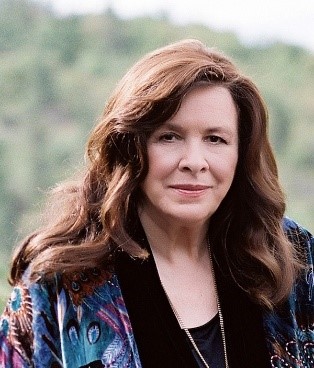Energy Medicine and the Politics (Politeia) of Health
“Politics” is derived from the juicier Greek word, “politeia,” which implies an active engagement in which people empower each other to enhance their communities. – Jean Houston

“The Earth is what we all have in common.”
—Wendell Berry
3rd of Series
If you didn’t read the earlier installments, we suggest you start here.
Harnessing the Energies of Politeia
Jean Houston, Ph.D.
In the previous installment of this series, Donna and David echoed the following point by my friend and colleague, the late Joseph Campbell: “If humanity is to survive, at least one archaic but dominating myth must be transformed. While all mythological systems direct the ‘expansive faculty of the heart’ toward the in-group, they deliberately direct ‘every impulse toward violence’ at the out-group.” We are witnessing another tragic instance of this violence toward yet another manufactured “out-group” in Russia’s invasion of Ukraine.
The invasion not only activates the fight-or-flight response of our collective Triple Warmer, as Donna and David explained last month. It has also activated our collective Radiant Circuit response – the “Inner Mom” writ large – as seen through a global outpouring of solidarity and support. A new collective response is emerging all over the planet, forcefully countering the old ways of “divide, conquer, and rule.”
The soul of politeia, the energy that fuels active engagement for boosting community well-being, is awakening in the midst of this violence and terror. Here are six forms within which the energy of politeia can operate towards establishing a culture of vibrant health for the individual and the community:
1. A politeia of participation provides all members of society with opportunity to influence political and economic institutions affecting their lives and fosters personal responsibility to fulfill these tasks. No one in our present era is innocent of responsibility; each of us has a role to play. We ask people to think about what their role might be. Perhaps their community needs a safe place for teenagers to hang out, or the local independent bookstore needs support. Perhaps schools, or senior centers, or battered women’s centers need volunteers. We urge them to imagine it, write about it, read about it, talk to encouraging friends about it. Get some allies and do something about it, one step at a time. Or as a Seattle environmental activist who had just celebrated her hundredth birthday said after telling the story of her remarkable life, “You do what you can. And then you do some more."
2. A politeia of rediscovery rekindles spontaneous generosity and neighborliness and honors the capacities of others. In this world of human snowflakes, a neighborhood is an extraordinary collection of ingenious, eccentric, brilliant, skillful, weird and wonderful types. One of the reasons people watch sitcoms is that the actors and script writers play out the lives of typical families and communities in only slightly exaggerated form. What if you turned off the TV and turned on your neighborhood instead? You might find stars of human possibility waiting to be discovered. The greatest of all human potentials is the one that recognizes and evokes other people to bloom. Seek out ways of encouraging each person’s capacity by improving and deepening the processes of human life: our birthing, our parenting, our nutrition, our health, our fitness, our family and community life, our education, our arts, our sciences, our ways of growing old, and our ways of dying beautifully. These concerns make us fully human.
3. A politeia of creativity activates the artistic process to recharge our imaginations. You and your allies might organize a festival of way-out ideas, new inventions, creative visions, modes of expression. Get together a group to paint a community mural, landscape the town square, start a craft co-op, bring local businesses and schools together to design and build a playground. There’s nothing the human imagination working in community cannot accomplish.
4. A politeia of healing moves us beyond the polarities of left vs. right, or us against them, and promotes cooperation, understanding, and networks of mutual aid. Consider the politeia work of Leah Green who helped facilitate compassionate listening between Israelis and Palestinians. What if you were to create a meeting place where, once a month, conflicting groups—skateboarding teens and local police, public utility companies and conservationists—could talk to each other? Before the session, act out a compassionate listening dialogue to model the technique, making your interaction heartful and even funny so that people lose their resistance and want to try. You’ll find that when people start to dialogue in a spirit of fairness and deep listening, critical issues can be addressed with wisdom and integrity.
5. A politeia of celebration encourages music, songs, humor, dances, rituals, and myths of possibility to be played out, performed, and celebrated. Building community in the new millennium requires that we create social theater to tell the New Story of a world in transition. A woman student I know in a small town in rural Georgia took the stories of her area’s local history and the lives of individual town members and created a pageant called Swamp Gravy in which everyone in the community participated. Now in its 22nd year, it has been so healing for her town that it has been carried all over the world, helping other towns and villages to create their own social theatre. What if we each became a local impresario for Jump Time talent, from pre-schoolers and seniors? If we each encouraged schools, community and civic groups, churches, and neighborhoods to get involved, we might trigger a renaissance of theatrical and musical engagement in our communities as a fertile seedbed for new ideas and vision.
6. A politeia of hope encourages an attitude of wonder and astonishment before what can be. It treats the problems and scarcities before us as opportunities to clarify what is really important. In this, we might well take a lesson from the Iroquois people who, before their council meetings, spoke their praise and gratitude for everything, naming their blessings with words and songs of wonder. Think how different it might be if your local school board meeting began with gratitude for the community’s blessings and with hopeful declarations rather than with partisanship, discouragement, or resentment. Hope gives us energy and motivation and avails the human mind of its finest treasures.
What politeia seeks is the most radical change in our collective and individual consciousness that the world has ever known. We need a new purpose. Each one of us has a piece of the puzzle. Each and every one of us has an awareness of what is possible: a world where energy no longer gets stuck, where people are heard, where helplessness and victimhood have disappeared, where constructive solutions are possible, where human nature shines, and where nature’s soul becomes re-enchanted with wonder.
We are charged by the knowledge that in designing a world that works we must return to individuals much of the authority lost to institutions during the explosion of industrialization. Suddenly, through social media and other opportunities we have more control over information and resources, a development that is already playing havoc with traditional top-down government, business, and even religion. We are part of a revolution in autonomy as well as responsibility.
In a world of densely interconnected communication networks of people who cherish their communities and care deeply about life on this planet, something never seen before is emerging: a “meta-sphere of governance.” Grounded and responsive to each individual, this movement involves every area of the Earth in a conscious, self-organizing, life-serving planetary process. The Earth herself is becoming a vast teaching-learning community, a new order of democratic biology, as individuals and groups learn as they participate and create together a new arena for social evolution.
Our guest contributor to next month’s Politeia of Health Series will be Jean’s co-author, Anneloes Smitsman, extending Jean’s article by discussing what the politeia of health means in an increasingly complex world on a climate-change planet.

Jean Houston, Ph.D., is a world-renowned scholar, futurist, and researcher in human capacities, social change, and systemic transformation. She was one of the principal founders of the Human Potential Movement and is the founder of the field of Social Artistry (“Human development in the light of social change”). She has worked intensively in more than 40 cultures, lectured in over 100 countries, and worked with major organizations such as UNICEF, UNDP, and NASA. She is known for helping global leaders, heads of state, leading educational institutions, business organizations, and millions of people to enhance and deepen their capacities. She has written 36 books, the most recent being The Quest of Rose and Return of the Avatars, the first two books of the Future Humans Trilogy (being co-authored with Dr. Anneloes Smitsman).
